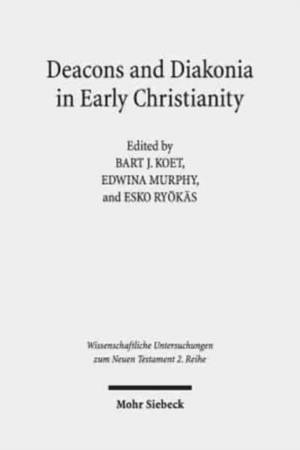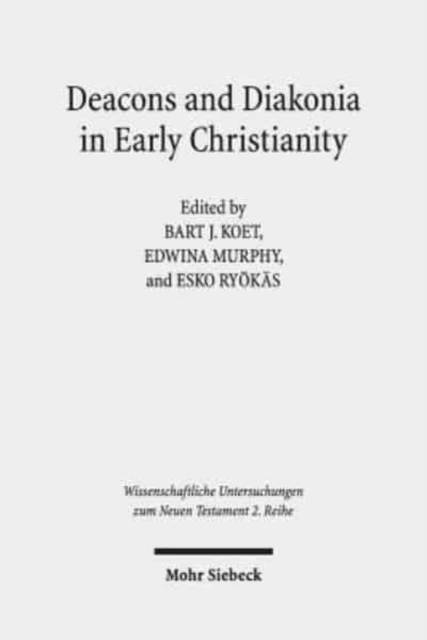
- Afhalen na 1 uur in een winkel met voorraad
- Gratis thuislevering in België vanaf € 30
- Ruim aanbod met 7 miljoen producten
- Afhalen na 1 uur in een winkel met voorraad
- Gratis thuislevering in België vanaf € 30
- Ruim aanbod met 7 miljoen producten
Zoeken
Deacons and Diakonia in Early Christianity
The First Two Centuries
Paperback | Engels | Wissenschaftliche Untersuchungen zum Neuen Testament 2. Reihe | WUNT II | nr. 479
€ 102,95
+ 205 punten
Omschrijving
In German-speaking countries, the role of the diaconate has been strongly influenced by nineteenth-century ideas of diakonia as service towards the poor. As important as the social initiatives stemming from this perspective have been, in order to correctly understand deacons and diakonia in the early church, we must go back to the sources. For this volume, focused on the first two centuries of Christianity, scholars from a range of backgrounds consider the use of diakonos and related words in the New Testament and extra-biblical sources, both Christian and otherwise. These texts reveal what deacons actually did, helping us to understand the past and giving guidance for the present, particularly in ecumenical discussions concerning the ministry. Contributors: Joke H. A. Brinkhof, John N. Collins, John Granger Cook, Paul Foster, Mark Grundeken, Anni Hentschel, Clayton N. Jefford, Bart J. Koet, Anni Maria Laato, Margaret Mowczko, Edwina Murphy, Esko Ryokas, Serafim Seppala, Peter-Ben Smit, Lauri Thuren, Anssi Voitila, Munib Younan
Specificaties
Betrokkenen
- Uitgeverij:
Inhoud
- Aantal bladzijden:
- 327
- Taal:
- Engels
- Reeks:
- Reeksnummer:
- nr. 479
Eigenschappen
- Productcode (EAN):
- 9783161566462
- Verschijningsdatum:
- 1/01/2019
- Uitvoering:
- Paperback
- Formaat:
- Trade paperback (VS)
- Afmetingen:
- 155 mm x 231 mm
- Gewicht:
- 521 g

Alleen bij Standaard Boekhandel
+ 205 punten op je klantenkaart van Standaard Boekhandel
Beoordelingen
We publiceren alleen reviews die voldoen aan de voorwaarden voor reviews. Bekijk onze voorwaarden voor reviews.










